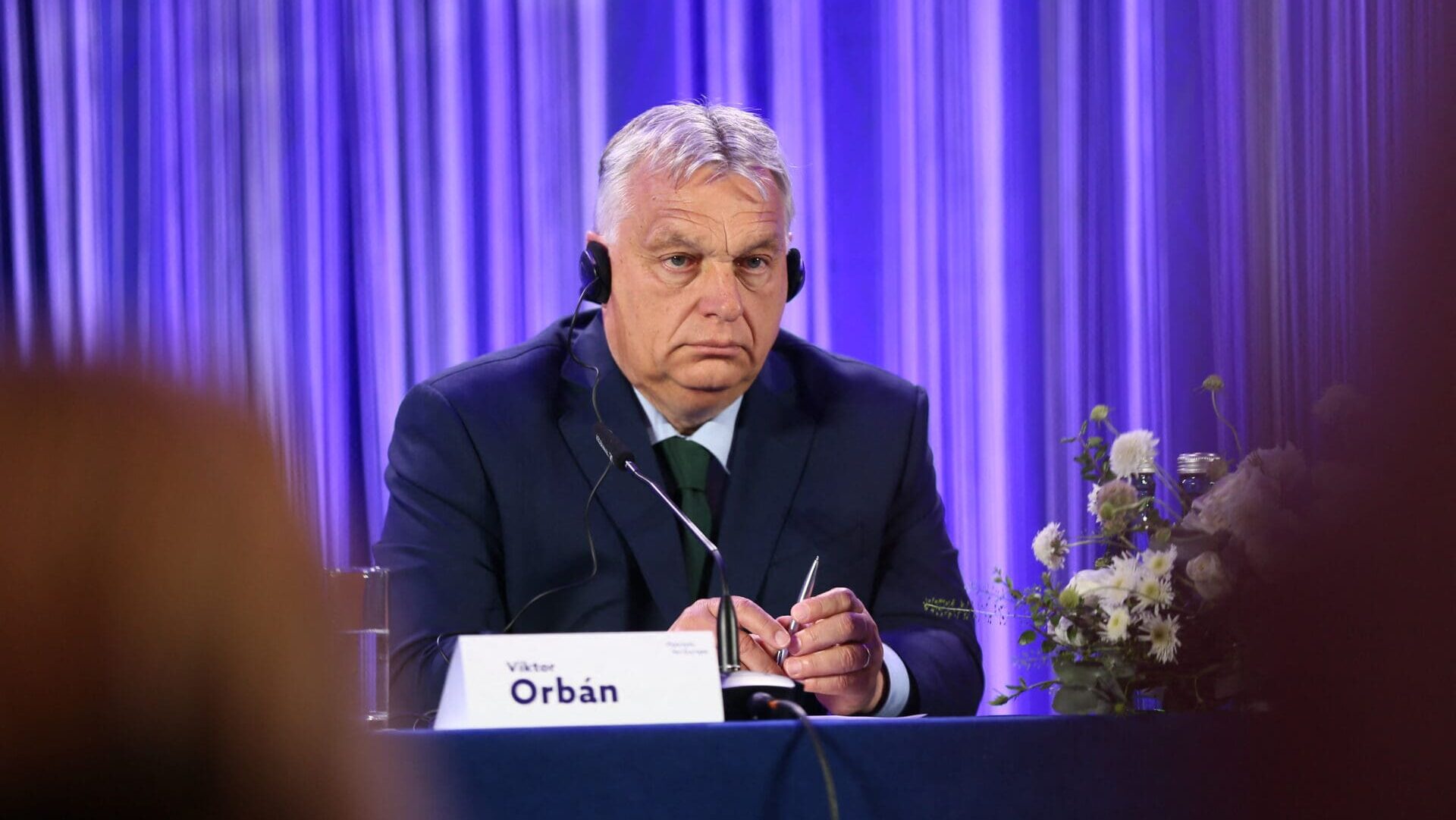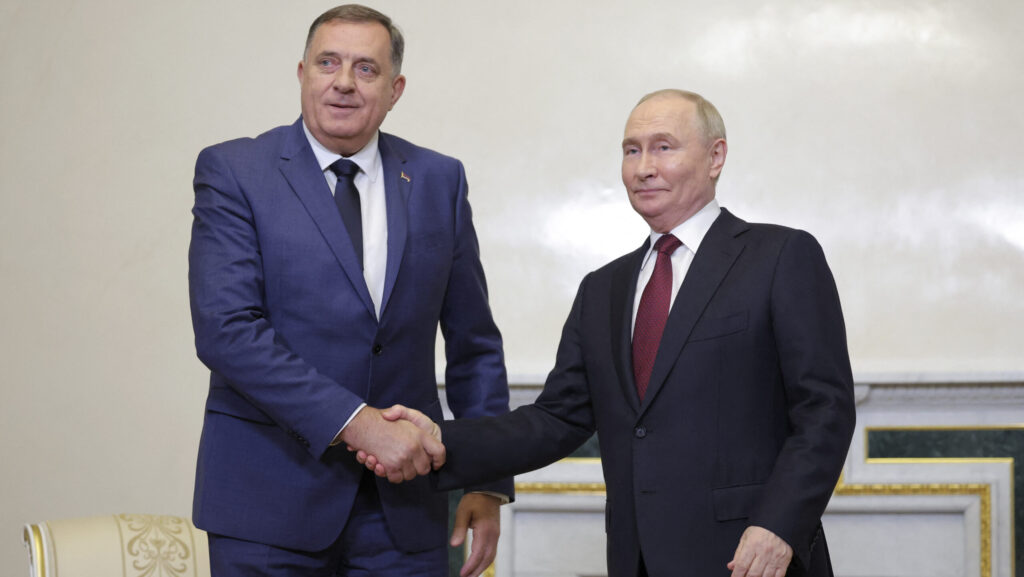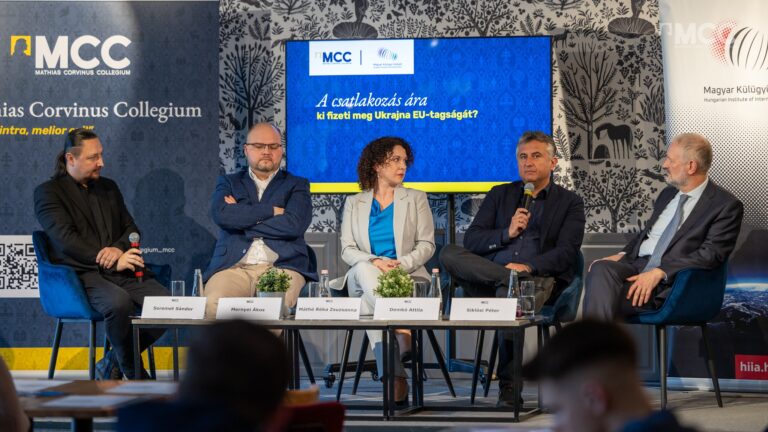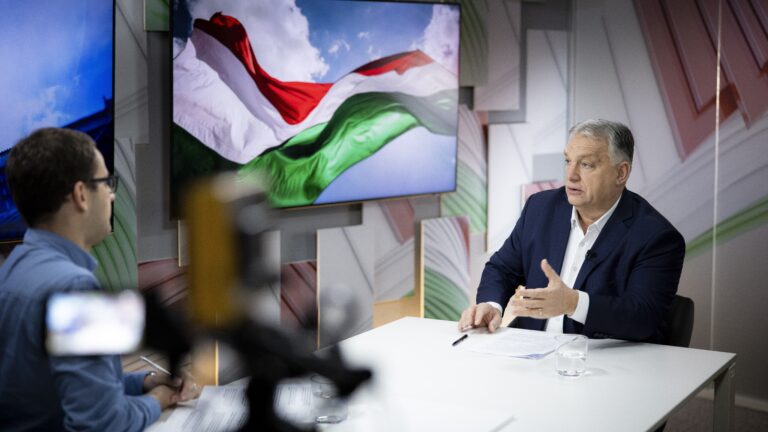On Sunday, 30 June, months of speculation came to an end. Hungarian Prime Minister Viktor Orbán, along with Herbert Kickl, President of the Austrian Freedom Party (FPÖ), and former Czech Prime Minister and ANO party President Andrej Babiš, announced the creation of a new European Parliament political group called Patriots for Europe. This development signifies that Fidesz, which has not been affiliated with any European Parliament political group since 2021, will not be joining any of the existing right-wing groups.
According to Orbán, the newly formed alliance will soon become the largest faction of the European right. ‘It will happen within days,’ the Hungarian PM emphasized. Orbán stated that Europe needs peace, order, and development, which the current Brussels elite is unable to provide for its citizens. One of the group’s objectives is to reform the European Parliament, significantly reduce its size, protect national sovereignty, and prevent the creation of a European superstate.
And they will certainly find strong allies in achieving these goals.
Each of the three founding members won their country’s European elections at the beginning of June. With 26.14 per cent of the vote, ANO will have 7 MEPs in the new European Parliament, while the FPÖ will strengthen the sovereigntist camp with 6 MEPs, having secured 25.36 per cent of the vote. Fidesz came first with 44.82 per cent of the vote and will be able to send 11 MEPs to the soon-to-be-constituted Parliament. This already exceeds the threshold of 23 MEPs needed to form a political group but does not yet meet another requirement: that MEPs must come from at least seven EU member states.
The unofficial deadline for forming political groups is 4 July, giving the three leaders until then to gather members for the new political family. But who are these potential allies?
A Victory for Orbán, a Blow to Meloni?
There is no shortage of such parties. Firstly, there is the Law and Justice Party (PiS) of former Polish Prime Minister Mateusz Morawiecki, which is currently a member of the European Conservatives and Reformists (ECR), founded by Giorgia Meloni. However, this could easily change. PiS didn’t show up at the group’s constitutive meeting on 26 June. Morawiecki told POLITICO that PiS has a 50/50 chance of leaving the ECR. ‘It’s quite obvious that we could be united on a geographical platform and not an ideological platform. I’m less and less interested in all those ideological elements of the jigsaw,’ the former Polish PM said.
Patriots for Europe would be a perfect choice for PiS: Viktor Orbán is a long-time ally of Morawiecki, and a Central European grouping could
significantly increase the weight of the region's states in European decision-making.
PiS is sending 20 MEPs to the new Parliament, and their potential accession would bring the new alliance to 44 MEPs, overtaking the Left’s faction. However, the departure of PiS would be a significant blow to the ECR, currently the third-largest political group in the EP.
The candidates include Slovak Prime Minister Robert Fico’s Smer-SD party, whose MEPs were expelled from the Socialists and Democrats (S&D) in October 2023 after Fico won the elections. Joining the alliance would be ideologically and geographically ideal for Smer, which also takes a pro-peace stance on the war in Ukraine and holds a similar position on migration to the Patriots for Europe. However, Slovak President Peter Pellegrini, leader of the Hlas party, which is allied with Smer, has indicated that Fico would like to rejoin the S&D. Smer came second in the EP elections and is sending 5 MEPs to the European Parliament.
ID Could Suffer Big Losses
According to press reports, Babiš has also held talks with Marine Le Pen’s National Rally (RN) party, currently the leading party of Identity and Democracy (ID). The RN won a landslide victory in the French EP elections, prompting Emmanuel Macron to call early elections. The first round of the snap elections was held on Sunday, with Le Pen’s party coming out on top with 33.25 per cent, another victory over the left. The RN will send 30 MEPs to the European Parliament, but there has been no official sign of any intention to leave the ID—a move which would effectively mean the end of the ID.
Alternative for Germany (AfD), which was recently expelled from ID, also sees Patriots for Europe as a new opportunity. ‘This opens up new opportunities for the AfD to cooperate with other parties, as the party landscape of the ECR and ID as a whole is on the move,’ a spokesperson for AfD co-leader Alice Weidel told ntv. The AfD has very good relations with the FPÖ, but the situation is different with Viktor Orbán. The Hungarian PM has previously stated that it is unclear whether the AfD, which is sending 15 MEPs to the European Parliament, is for or against Europe.
Another potential member of Patriots for Europe is the Italian League party, led by Matteo Salvini. Salvini immediately congratulated the formation of the alliance, stating in his X post: ‘League has been working for years to build a different EU, without the leftists who have destroyed Europe in recent years, by involving as many parties as possible.’ Salvini has previously held several talks with Viktor Orbán to form a political group of European right-wing forces, so it is not at all out of the question that we could soon see the two politicians and their parties in an alliance. League is sending 8 MEPs to the European Parliament.
Da anni la Lega lavora per coinvolgere il maggior numero di partiti che mirano a costruire un’Ue diversa, senza le sinistre che negli ultimi anni hanno distrutto l’Europa e indisponibili a sostenere Ursula Von der Leyen.
— Matteo Salvini (@matteosalvinimi) June 30, 2024
Vogliamo allargare il più possibile il perimetro di un…
According to press reports, Babiš also consulted with Geert Wilders, leader of the Dutch Party for Freedom (PVV), which is also a member of ID and won 6 seats in the EP elections.
On Monday, the Portuguese Chega (Enough!) party announced its intention to join the Patriots for Europe coalition, with the southern newcomers sending 2 MEPs to the European Parliament. Other potential candidates include the Spanish right-wing party Vox, also closely allied with Viktor Orbán, which has 6 MEPs; the Belgian EP election winner Vlaams Belang, with 3 MEPs; the Danish People’s Party, with 1 MEP; and the Conservative People’s Party of Estonia, also with 1 MEP.
The addition of the above-mentioned parties would bring the number of seats held by Patriots for Europe to around 100,
making it the third-largest political group in the European Parliament,
thus knocking Giorgia Meloni’s ECR out of their current position.
However, there are many uncertainties, as the listed parties, despite having similar ideological positions on issues such as migration and the future of Europe, are very divergent on foreign policy, especially regarding the war in Ukraine. If they can overcome these differences, or at least set them aside, they may indeed be able to counter the will of the liberal mainstream in the European Parliament and exert significant influence on European decision-making over the next five years.
‘We are taking back our institutions and steering European policy in a direction that serves our nations and our peoples. We will put sovereignty above federalism, freedom above dictates, and peace above conflict: this is the manifesto of Patriots for Europe,’
concludes the manifesto signed by the three leaders on Sunday.
Related articles:








